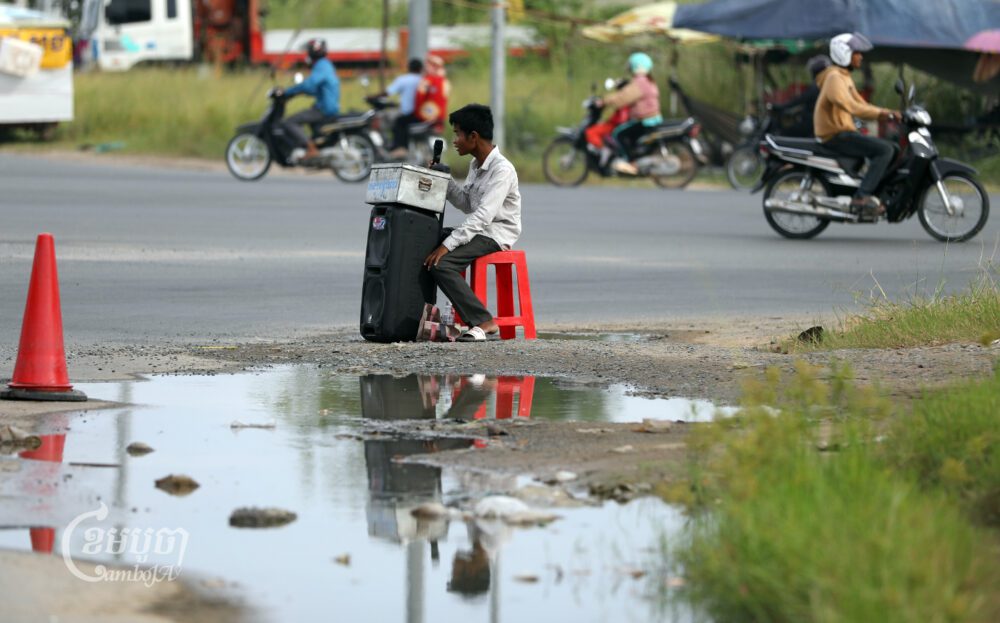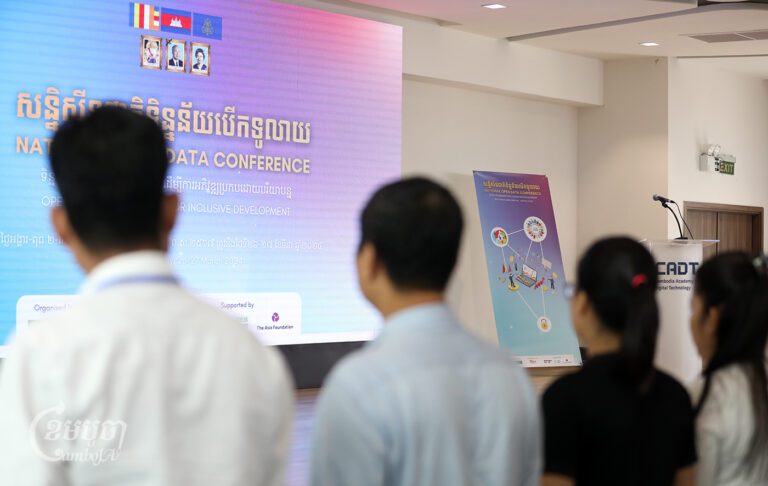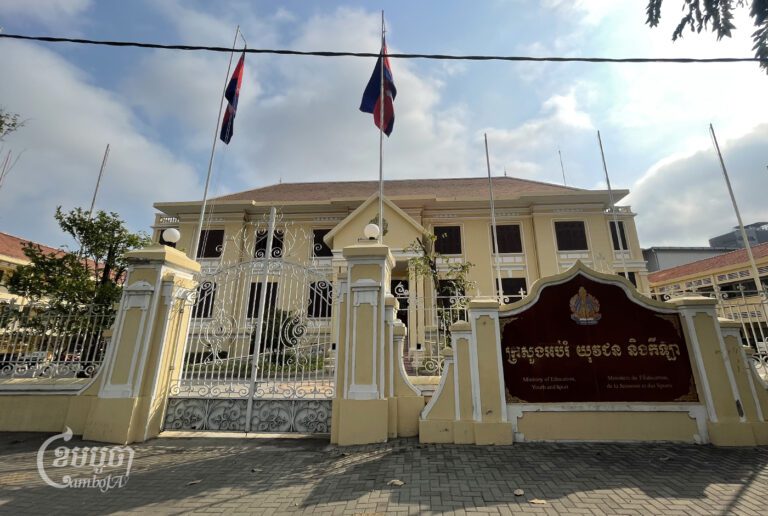A July sub-decree aims to improve the registration process for disabled people in order to receive government assistance, but most disabled people in the country have yet to benefit from the identification program that began registrations in 2020.
The sub-decree signed by former Prime Minister Hun Sen on July 19, Disability Identification by Social Model and Basic Rights, offers direction on organizing and managing the country’s database of the disability identification system in an effort to help disabled people access social services.
The government has registered about 260,000 people so far, a little more than a third of Cambodia’s estimated disabled population, according to the Department of Welfare for the Disabled.
Despite the effort to improve registration and data management of Cambodia’s disabled population through the sub-decree, a monthly cash assistance program has yet to be developed and registration has been slower than expected and is far from complete.
The department’s director San Ratana said many disabled people are still unaware that they are eligible to register because they are in remote areas without access to the information.
Disabled citizens can register in their commune, and the identification process has received support from Unicef. Registered individuals have not been provided ID cards yet, but will receive them “soon,” Ratana said.
“I ask not to confirm the date [when ID cards will be issued] because it might change, so there’s no need to let people know what to expect,” Ratana said.
Despite the lack of official ID cards, he said registered disabled people can access certain hospital services and a program that prioritizes disabled people for employment. The database was also used to distribute COVID-19 vaccines to disabled people as a prioritized population. Ratana did not provide a number of how many people are receiving benefits when asked by a CamboJA reporter.
“A lot of people with disabilities already benefit from our system, such as getting connected to the social protection program and receiving cash assistance during inflation and flooding.”
Registered individuals have benefited from cash transfers while communities experienced crises such as flooding or COVID-19. But a monthly cash assistance program for disabled people has not been developed, although officials plan to establish one in the future.
Ministry of Social Affairs spokesperson Touch Channy said that improving the identification system will allow the government to have better data on the disabled population.
“We want to know how many people with disabilities there are and what type of disability they have,” he said. “After we have this data, we can provide funding and social support to them through a cash transfer program.”
A 100-day campaign in 2021 mobilized officials in 1,652 communes and sangkats to participate in the registration process, which is designed to be on-demand and voluntary, according to Will Parks, Unicef Representative in Cambodia.
“The process has been slower than expected due to multiple reasons, including social norms linked to being a person with disability,” he said. “Many people living with disabilities don’t view themselves as such or don’t want to be considered a person with disability.”
He said another registration campaign is planned for September and October of this year.
Mak Monika, program manager of the NGO Cambodia Disabled People’s Organization, said the sub-decree indicated a positive step towards helping people with disabilities.
“I think this is the beginning of identifying them [disabled people]. Maybe in the future the government will provide the monthly cash assistance to them,” she said. “We believe that if those people with disabilities can get it [an ID card], they can benefit from it.”
The sub-decree classifies disabilities into five types: physical disabilities, cognitive disabilities, autism, mental disabilities and other disabilities. There are three levels for each type: level one (severe), level two (moderate) and level three (mild).
These kinds of classifications are also present in a draft law on the rights of persons with disabilities that has been in the works since 2019. Human Rights Watch has criticized the law, stating that it uses stigmatizing language and creates separate levels of disability that are discriminatory, and the UN raised concerns about the law not falling in line with international human rights standards.
While Monika is pleased about disabled people being registered for the ID program, she believes the government needs to expedite the process of passing the draft law. Ratana told CamboJA that drafting and passing the law takes time because the government needs to collect input from all stakeholders.
Heak Nith, a visually impaired street singer in Phnom Penh, told CamboJA that he did not know about the government’s efforts to identify disabled people or the recent sub-decree. He said one challenge he faces is being arrested by the police for singing in public on the street, which he does to earn money.
“Sometimes they [the police] insult me and I can’t say anything because they accuse me of doing something illegal,” Nith said. “Previously, I have never received any support from the government.”
When told about the new sub-decree by a CamboJA reporter, he was happy to hear that the government was paying attention to disabled people and said he would be willing to do an interview and register to receive benefits.
With more support from the government, he said disabled people could live more comfortably.
“My expectation is that people with disabilities will be able to live better and have easier access to public services such as hospitals and we can go without paying, because we do not currently have all those services,” he said.
Another disabled Phnom Penh street singer Nhim Seun, 53, said he has had a lot of difficulties because he must earn money to pay back a bank loan and feed his family. He told CamboJA that he did not know about the registration efforts as authorities had never told him about the program.
“I ask that the government help spread this information in my village because I am illiterate.” He said. “If they [the government] supported me, I would say thank you.”
He hopes that when the government implements its assistance program for disabled people, he will not have to pay anymore when he goes to receive public services like treatment in hospitals.
Former government spokesperson Phay Siphan declined to comment on the sub-decree when contacted by CamboJA while he was still in the position in August. Current government spokesperson Pen Bona did not respond immediately to a request for comment.










